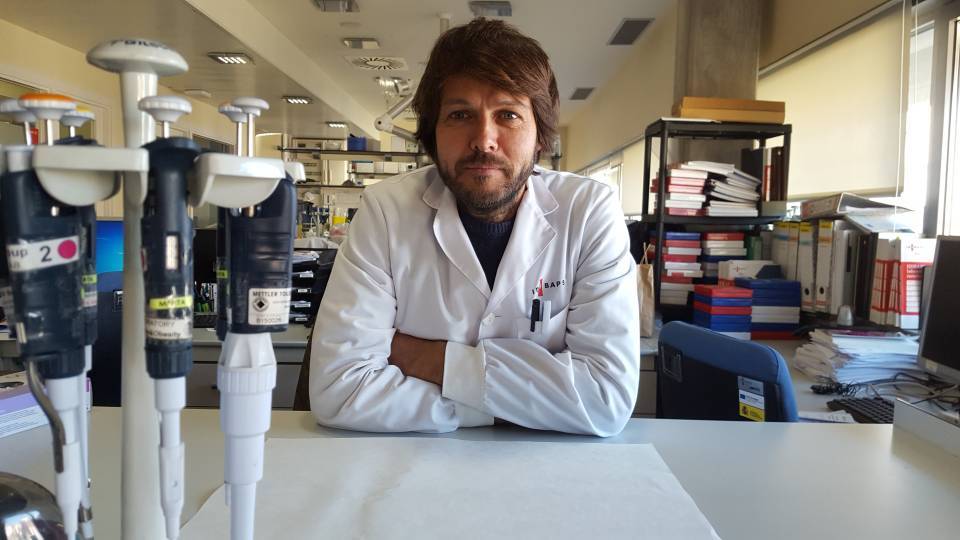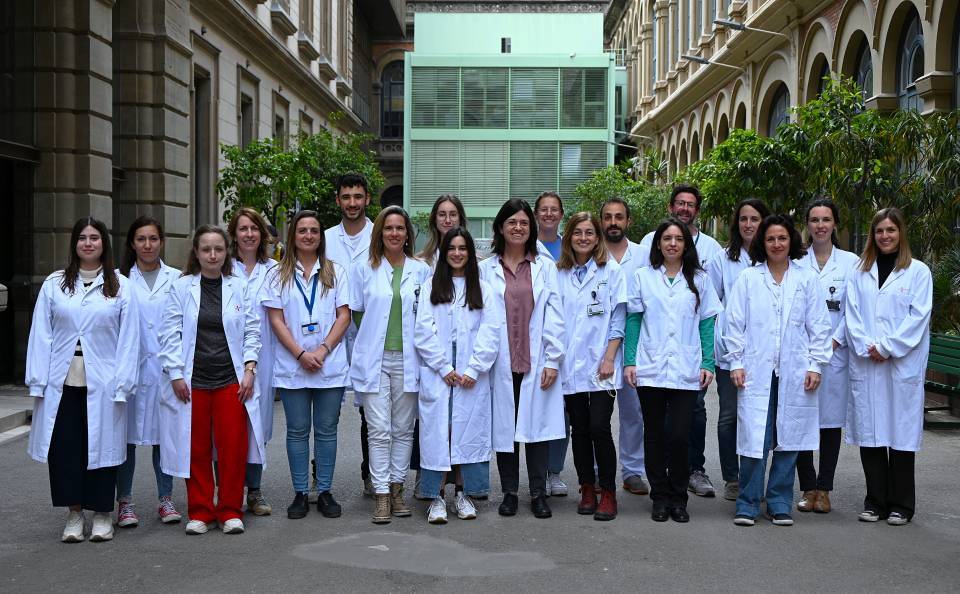Researchers from the Hospital Clínic Barcelona - IDIBAPS, together with researchers from the Hospital La Paz in Madrid and the Hospital Sant Joan de Déu in Barcelona, have published a pioneering study of Foetal Alcohol Spectrum Disorder (FASD) in the journal Biomedicine & Pharmacotherapy. The study explores the effects and the prenatal exposure to alcohol and the therapeutic potential of a natural compound: epigallocatechin-3-gallate (EGCG), an antioxidant present in green tea. The coordinator of the study was Dr Òscar Garcia Algar, from the Neonatology Service at the Hospital Clínic Barcelona.
Evaluating the therapeutic potential of antioxidants in green tea
The study, carried out in mice, shows that alcohol intake during pregnancy—both in moderate consumption patterns and in episodes of excessive consumption—alters brain development and the behaviour of the offspring. However, postnatal treatment with EGCG could partially reverse these effects, improving memory, motor coordination and restoring key molecular markers in the brain.
To assess the effects of alcohol consumption and the response to EGCG treatment, tests were carried out on motor behaviour, memory and learning, as well as a molecular analysis that detected alterations in various brain markers related to neuronal plasticity, maturation, cell proliferation and oxidative stress.
The postnatal treatment of mice with EGCG has shown a significant therapeutic effect. It improves cognitive and motor performance in mice previously exposed to alcohol during pregnancy. It also restores the levels of various brain biomarkers altered by prenatal alcohol exposure. And it is particularly effective in cases of moderate consumption, while in cases of heavy drinking, some damage is irreversible.
The researchers stress that human studies are needed to understand in depth how EGCG works and to assess its safety and efficacy in humans. Nevertheless, this work represents an important first step towards a possible therapeutic strategy for a particularly vulnerable population.
Foetal Alcohol Spectrum Disorder (FASD)
Today, 9 September, is International Foetal Alcohol Spectrum Disorder (FASD) Awareness Day. FASD is a disease caused by exposure to alcohol during pregnancy. It encompasses a large number of physical, mental, behavioural and cognitive abnormalities. The most serious form within this spectrum is Foetal Alcohol Syndrome (FAS). It is characterized by morphological malformations (especially craniofacial defects), growth retardation and cognitive, behavioural, social and learning disorders (due to problems in the development of the central nervous system).
Currently, the main treatment for FASD is based on adaptations of all kinds (in daily life, education, work, etc.) and on neurocognitive and behavioural psychological interventions. On some occasions, pharmacological treatment is necessary when very specific signs and symptoms are present, such as hyperactivity and attention deficit.




